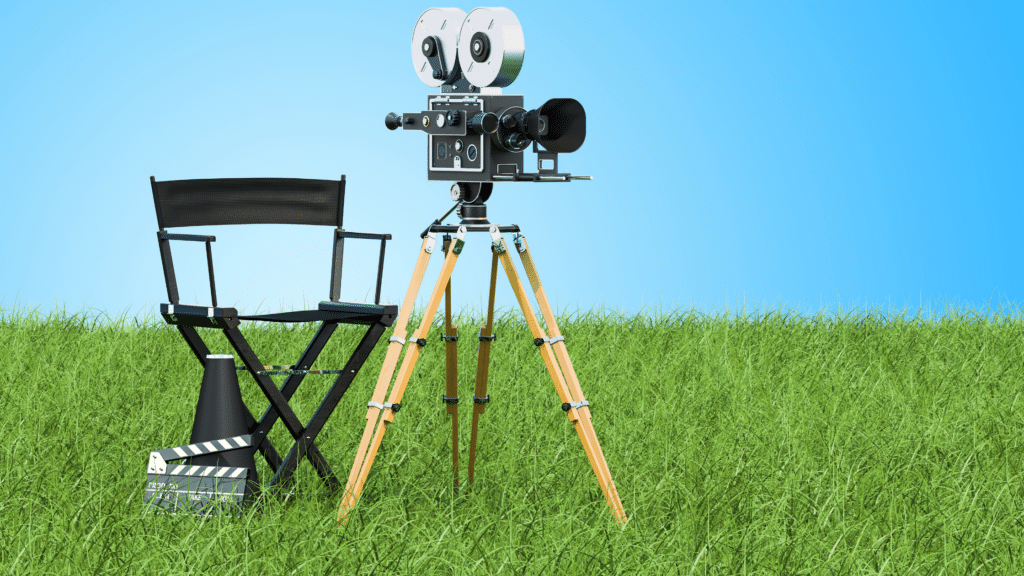A (Very) Short History of Spielberg’s Filmmaking Journey
Written by Colette Nichol, Solo Filmmaker and Story Strategist
Estimated reading time: 5 minutes
Steven Spielberg, one of the most influential filmmakers in the history of cinema, offers us a case study in self-taught success. His journey from a young, passionate storyteller to a legendary director provides lessons for aspiring filmmakers. In this short post, we’ll explore Spielberg’s self-education in filmmaking, his inspiration, and the techniques that have made him an icon.

Spielberg’s Self-Taught Journey
Early Beginnings
Spielberg’s passion for filmmaking began in his early teens.
He started by creating 8mm amateur films, experimenting with storytelling and camera techniques. These early projects helped him develop his skills. He started by making numerous short films before tackling his first micro-low-budget self-produced feature film.
Learning by Doing
Spielberg’s approach to learning was hands-on.
He spent countless hours writing, directing, and editing his films. This practical experience was his classroom, teaching him the intricacies of filmmaking. This is something we can all learn from. You don’t learn filmmaking by sitting in a desk! You learn it by making things.
Roll up your sleeves, and get your hands dirty!
Spielberg’s Formal Education
Did Spielberg Graduate from Film School?
Unlike many of his contemporaries, Spielberg did not graduate from film school. He attended California State University, Long Beach, but left to pursue his filmmaking career. He later completed his B.A .in 2002. In addition to his B.A., he has five honorary doctorate degrees, one of which is from Yale.
Contribution of Education to His Skills
While Spielberg’s formal education was limited, his time at university provided him with a broader understanding of film theory and history. However, his real education was through his relentless practice and self-study.
Inspirations and Influences
Key Figures and Inspirations
Spielberg was inspired by the works of filmmakers such as Stanley Kubrick, David Lean, John Ford, and Alfred Hitchcock. He was also deeply inspired by Walt Disney.
Spielberg told Rolling Stone magazine in 1985:
“I came screaming home from Snow White when I was eight years old and tried to hide under the covers. My parents did not understand it, because Walt Disney movies are not supposed to scare but to delight and enthrall. Between Snow White, Fantasia and Bambi, I was a basket case of neurosis. […] Actually, I was probably more influenced by Walt Disney than by anybody else. I loved cartoons as a kid, and I remember that I was more frightened by the Night on Bald Mountain sequence in Fantasia than by anything I ever saw in a movie before or since.”
In 2013, Spielberg spoke with the American Film Institute, explaining:
“I try to rent a John Ford film, one or two, before I start every movie. Simply because he inspires me, and I’m very sensitive to the way he uses his camera to paint his pictures, the way he frames things. […] He’s like a classic painter, and he celebrates the frame and not just what happens inside of it.“
Guidance and Mentorship
Although Spielberg was largely self-taught, he did seek guidance from industry professionals as his career progressed.
He had many industry mentors. And producers and studio executives, such as Sid Sheinberg at Universal Studios, played a crucial role in his early career.
In addition, it’s well known that Spielberg’s mother was hugely encouraging during his early years.
She could have been the most important influence in his life as she pushed him towards pursuing filmmaking.
Spielberg’s Filmmaking Techniques
Signature Techniques
Spielberg is known for his innovative use of the camera, creating dynamic scenes with fluid camera movements.
His use of the long take and deep focus are particularly notable. Deep focus refers to having the foreground, background, and subject all in focus.
Spielberg is also acclaimed for his ability to evoke emotional responses through visual storytelling. He aims to make his movies entertaining at every turn.
Finally, Speilberg is an unabashed entertainer. He aims to keep his viewers engaged and entertained at every moment of the film. He’s not trying to bash you over the head with intellectual concepts. I recall reading somewhere that he got this obsession with keeping his audience engaged through making and screening his 8mm short films as a kid.
He’d pay attention to where he got the laughs and the gasps. That informed him as he went on to make his next short.
Early Film Projects
A Glimpse into His Beginnings
Some of Spielberg’s early projects include short films like “Amblin’” (1968) and his first TV work, “Duel” (1971).
These early works were where he began honing his craft and set the stage for his illustrious career.

Final Thoughts
Steven Spielberg’s journey in filmmaking is a testament to the power of passion, creativity, and relentless self-teaching.
His story reminds us that formal education, while valuable, is not the only path to success in the film industry. Spielberg’s early experimentation, influenced by cinema greats and supported by industry mentors, laid the foundation for his unique storytelling and technical prowess.
Remember, that everyone’s road to becoming a filmmaking is unique. However, we all have to learn how to tell stories; put together shot sequences; and direct a camera, a crew, and actors.
As solo filmmakers, we have to learn how to use our camera and sound gear as well as our edit to tell engaging stories.
No matter what kind of filmmaker you choose to become, you’ll need to be a passionate storyteller who truly cares about the audience.
More Filmmaking Articles
⭐ Best Camera for Beginners: Photography, Filmmaking, and Content Creation
⭐ How to Start Filmmaking, Even If You’re a Total Beginner
⭐ iPhone Filmmaking Tips for Beginners

About the Author
Hi! I’m Colette Nichol. I’m a solo filmmaker and story strategist based out of rainy Vancouver, Canada. I’ve been making videos and micro films for small businesses and global brands since 2014.
Plus, I LOVE to help aspiring filmmakers pursue their dreams and start making films. This blog is designed to help you gain the knowledge you need to become a filmmaker.
If you want more, get on the waitlist for the Story Envelope Academy Solo Filmmaking Mentorship Program. It opens up one time per year and is the best way to become a filmmaking or video pro fast!
CLICK HERE to get on the solo filmmaking mentorship waitlist.
